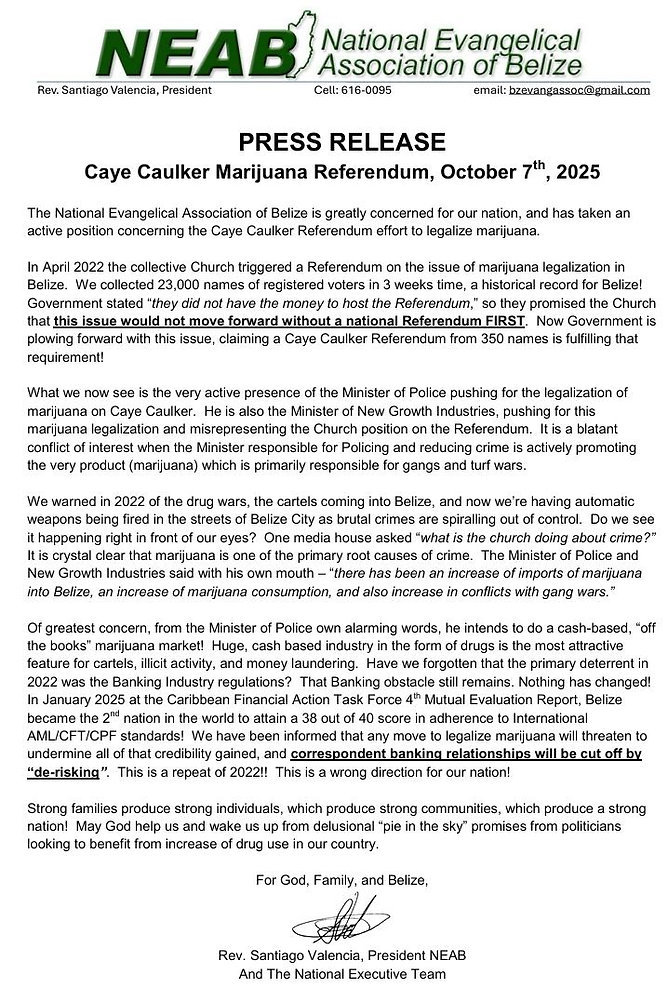The National Evangelical Association of Belize (NEAB) has voiced significant apprehensions regarding the forthcoming Caye Caulker Referendum on marijuana legalization. The Church contends that the government’s decision to proceed with a local vote contradicts its prior commitment to conduct a national referendum first. This development follows a historic grassroots effort in April 2022, when NEAB mobilized to gather 23,000 registered voter signatures in just three weeks—a record for Belize—to initiate a nationwide vote on the issue. At the time, the government cited financial constraints as the reason for delaying the referendum, pledging that no action would be taken without a national mandate. NEAB argues that the current local referendum, driven by a mere 350 signatures, violates this promise. The Church has also criticized the involvement of the Minister of Police, who oversees both law enforcement and New Growth Industries, including the promotion of marijuana legalization. NEAB labeled this dual role as a “blatant conflict of interest,” emphasizing the link between marijuana and escalating gang violence and crime in Belize City. The Church reiterated its 2022 warnings about drug-related violence and cartel activity, pointing to the recent surge in automatic weapon use on the streets. NEAB further highlighted the Minister’s acknowledgment of increased marijuana imports, consumption, and gang conflicts. Additionally, the Church cautioned that a cash-based marijuana market could foster illicit activities and money laundering, potentially jeopardizing Belize’s robust international banking reputation. In January 2025, Belize achieved a 38 out of 40 score for adherence to AML/CFT/CPF standards from the Caribbean Financial Action Task Force—a credibility NEAB fears could be undermined by legalization. The Church concluded with a call for societal vigilance, stating, ‘Strong families produce strong individuals, strong communities, and a strong nation. May God help us wake up from delusional promises by politicians seeking to benefit from increased drug use.’
